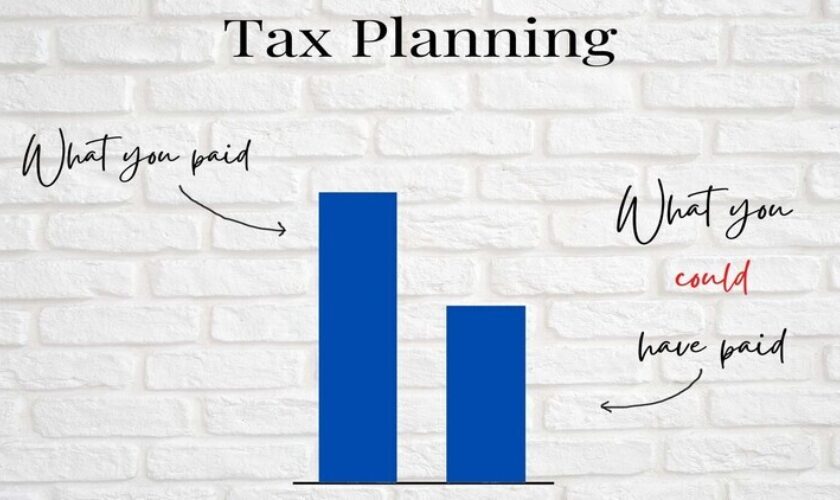How to Use Tax Strategies for the Success of Small Businesses?

One of the biggest challenges for small businesses is handling taxes and saving the most of their hard-earned money.
While most owners follow some standard practices, those always don’t work completely in their favor.
However, implementing effective tax strategies can lead to significant savings and improved financial planning. However, implementing advanced tactics requires more than just awareness.
A good deal of use of your instincts and understanding of tax can help you save more for your small business. You can build your knowledge by reading books, blogs, or listening to podcasts.
However, it is always best to seek the guidance of professional Padgett Business Services to implement effective tax strategies for your business.
Here are ten strategies that can help small businesses maximize their tax benefits and enhance their overall success.
1. Increase Deductions

Looking for a very simple tax reduction strategy for small businesses? Here’s one that must help. One of the most straightforward ways to reduce your tax liability is to maximize allowable deductions.
This includes expenses directly related to your business operations, such as office supplies, travel expenses, and utilities.
Keeping detailed and accurate records of all business expenses is crucial to ensure that you are claiming all eligible deductions. By reducing your taxable income, you can lower the amount of taxes you owe.
2. Use the Tax Credits
Unlike deductions, which reduce taxable income, tax credits directly reduce the amount of tax owed. So, small business owners should be aware of available credits. These credits are designed to encourage certain business practices, such as providing employee health insurance or hiring from specific target groups. Remember, taking advantage of tax credits can result in substantial savings.
3. Plan for Retirement Contributions
One of the best tax strategies would be planning for retirement contributions. Contributing to a retirement plan not only benefits your future financial security but can also offer immediate tax advantages.
Small businesses can explore options like SEP IRAs or SIMPLE IRAs, which allow for higher contribution limits than traditional IRAs.
Moreover, contributions to these retirement plans are often tax-deductible, reducing your business’s taxable income. In addition, offering retirement plans can help attract and retain talented employees.
4. Manage Payroll Taxes

Most businesses have to deal with the hurdle of Payroll taxes. It’s a significant expense. However, strategic planning can help manage these costs.
You should consider the timing of bonuses or other compensation that could affect payroll tax liabilities. In addition, staying informed about current payroll tax laws and ensuring compliance can prevent costly penalties. Using payroll software or outsourcing payroll tasks can also help streamline the process and reduce errors.
5. Leverage Depreciation
Depreciation is something small businesses can use to gain tax advantages. Depreciation allows businesses to deduct the cost of tangible assets over their useful life. This includes equipment, vehicles, and machinery.
Understanding the depreciation schedules and methods, such as accelerated depreciation, can provide immediate tax benefits by reducing taxable income in the early years of asset ownership.
Moreover, Section 179 allows businesses to deduct the full cost of qualifying equipment purchased or financed in the current tax year.
6. Business Structures Have Impact on Your Taxes
Have you ever considered rethinking your business structure? It can significantly impact your taxes. Sole proprietorships, partnerships, LLCs, and corporations are taxed differently, and the right choice depends on your specific situation.
So, consulting with a tax professional can help determine the most beneficial structure for your business. For example, forming an S Corporation can allow owners to receive both salary and dividend income, potentially reducing self-employment taxes.
7. Keep Accurate Records
Accurate and organized record-keeping is the foundation of effective tax management. Maintaining detailed records of income, expenses, and financial transactions ensures that you can substantiate deductions and credits.
It also simplifies the process of preparing tax returns and helps you respond promptly to any queries from tax authorities. You can consider using accounting software to maintain and organize records efficiently.
And if you are thinking of investing in this country you should know that in Singapore, accounting services are essential for businesses to ensure compliance with local tax regulations and financial reporting standards. Professional accountants can provide valuable advice on managing finances and optimizing tax obligations. If you’re looking for expert guidance, a team of accountants can help you with tax strategies to minimize liabilities and maximize efficiency for your business.
8. Consider Gifts for Beneficiaries
your business is more than just a business. It’s an asset that is ever-evolving and growing. A good way to secure that wealth is through giving some part of it to your family members. Start thinking about how to transfer some part of your wealth to your family members or beneficiaries. It not only helps you take some assets out of your estate but also ensures that your family members have some form of asset in their names.
In addition, you can cut down on business taxes by considering these gifts. If you are making it part of your estate planning, do it according to the ages of your children. While at it, ensure that it aligns with your business vision as well.
By transferring some part of the wealth, you can make your heirs own some of your wealth before they are of the age to earn voting rights. But remember that such decisions require time and ample thought before you can put them down on paper. It would help if you could discuss the decisions with your tax advisor.
9. Does Your Business Qualify For Different Tax Treatments?
Did you know that many business owners often get to deduct 20% of their qualified business income? But it doesn’t happen automatically. There’s a different route for it.
In such cases, owners have to pay the business tax in favor of the business. Small businesses can save ample amounts in taxes by following this tactic.
However, it’s also critical to note that this service is restricted to certain service businesses. For example, if you are running a legal, medical, or service business, your business may not qualify for these deductions.
10. Learn Tax Strategies
No other plan works better than this. If you want to bring yourself out of the maze of tax, you must start to learn about it. Build genuine interest in taxation, tax collection, tax repayment, and the ways to evade it. Look for different blogs, podcasts, and other forms of online platforms to learn about tax legally.
There are many online financial advisors. They help business owners navigate through the complex landscape of taxes. If you want to build your knowledge base on tax for business, focus on the following topics –
- S Corporation
- Maximize deduction
- work on retirement plans
- hiring your family member or children in business
- 14-day home rental rule.
- Health-related strategies
- Year-end tax strategy and more.
Conclusion
The tax strategies listed above can provide small businesses with opportunities to save money and enhance financial planning.
Remember, employing these strategies not only leads to tax savings but also supports the overall success and growth of the business.
For personalized advice, it’s wise to consult with a tax professional who can tailor these strategies to your business’s unique needs. Did you find this article helpful? Share your thoughts in the comment section. Thank you for reading.
Also read


























